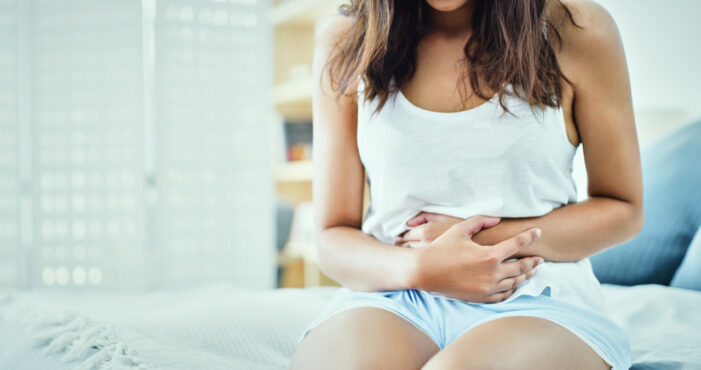NIH Will Fund Studies on Possible Link Between COVID Vaccination and Menstrual Cycle Changes

According to the British Medical Journal (BMJ), more than 30,000 British women experienced changes to their menstrual cycle after getting the COVID-19 vaccine. Reproductive immunologist Victoria Male, PhD wrote an opinion piece for BMJ calling for more research on the subject and stating, “a link is plausible and should be investigated.”1
Reported changes to women’s menstrual cycles post COVID-19 vaccination include heavier periods than normal, unexpected bleeding between periods and delayed periods.2 While the doctor confirmed that large numbers of women were reporting changes to their cycle after receiving either Pfizer/BioNTech, Moderna or Johnson & Johnson experimental shot, she said that there was no evidence that the vaccine led to infertility. She wrote:
Although reported changes to the menstrual cycle after vaccination are short-lived, robust research into this possible adverse reaction remains critical to the overall success of the vaccination programme.3
Dr. Male believes that further study will ease women’s fears that the experimental vaccine may affect their menstrual cycle and fertility and will persuade women that all they need to do is plan for altered menstrual cycles after getting the vaccine. She did not address the possibility that research could find a causal connection and validate women’s experiences with and concerns about the safety of COVID vaccines.4
Despite more than 30,000 women filing out yellow cards citing negative side effects such as a change to their menstrual cycle post vaccination, Dr. Male reported that the Medicines and Healthcare Products Regulatory Agency (MHRA) does not believe there is a link between the vaccine and menstrual changes because the number of these reports was small relative to the number of women who have received the vaccine.5 There were more than 30,000 reports by women in the United Kingdom of period irregularities after getting the shot out of 47 million doses of the vaccine administered.6 Only 26 percent of women in the world are actively menstruating,7 although it is unclear what percentage of COVID vaccine recipients are actively menstruating.
U.K. Regulatory Agency Denies COVID Vaccines Affect Women’s Menstrual Cycle But NIH Funds Targeted Research
Alison Cave, PhD, chief safety officer of the MHRA denied that the vaccine had any effect on women’s menstrual cycle, stating:
Based on our current rigorous safety monitoring, women can be reassured that the current evidence does not show a link with any changes in women’s periods or symptoms, nor is there any evidence to suggest that Covid-19 vaccines will affect fertility.8
However, health officials at the U.S. National Institutes of Health (NIH) have indicated there may be reason to look into a link between the COVID vaccines and changes to women’s menstrual cycles and awarded $1.67 million in grants to five institutions to research this potential connection. Researchers at Boston University, Harvard Medical School, John Hopkins University, Michigan State University and Oregon Health and Science University will use the funds to look for the first time at the effects of the COVID vaccine on the menstrual cycles of 400,000 to 500,000 woman over a one-year period.9
According to Diana Bianchi, MD, director of NIH’s Institute of Child Health and Human Development:
Our goal is to provide menstruating people with information, mainly as to what to expect, because I think that was the biggest issue: Nobody expected it to affect the menstrual system, because the information wasn’t being collected in the early vaccine studies.10
Pre-EUA COVID Vaccine Studies Did Not Evaluate Impact on Women’s Reproductive Health
The safety studies of the COVID-19 vaccines conducted before the COVID-19 vaccine manufacturers were granted an Emergency Use Authorization (EUA) by the FDA to distribute the experimental vaccines in the U.S. did not look into whether the vaccine affected women’s menstrual cycles. Dr. Bianchi observed that the lack of attention to evaluating the vaccine’s effects on women’s reproductive health before the EUAs were issued “points out the fact that safety studies for vaccines … are not necessarily thinking about the reproductive health of women. We hope that one of the things that’s going to come out of this is that questions will be added to clinical trial studies to include any changes in menstrual health.”11
The NIH speculates that changes to a woman’s menstrual cycle post COVID vaccination, “could be attributed to immune responses to the vaccines and their impacts on the uterus, as well as to pandemic-related stress, lifestyle changes and contracting the virus itself.”12
One of the professors who received funding from the NIH expressed confidence that the studies will provide clear answers to questions about the vaccines impact on women’s menstrual cycle and combat vaccine hesitancy. He (or she) said, “Anytime we can clarify what people can expect and understand better what the impacts of any changes are, hopefully that will help to decrease vaccine hesitancy.”13
Lauren Wise, ScD, professor of epidemiology at BU School of Public Health who received some of the research funds from the NIH will use the Pregnancy Study Online program she runs to collect data on menstrual changes of 1,800 women for six months post COVID vaccination. She anticipates publishing the results in the spring of 2022.14
Some researchers blame the women’s concerns about the safety of COVID-19 vaccines on social media misinformation and the government’s decision to back the funding of this research calling into question the surge in on-line censorship surrounding the vaccine.15
If you would like to receive an e-mail notice of the most recent articles published in The Vaccine Reaction each week, click here.
Click here to view References:
No comments:
Post a Comment